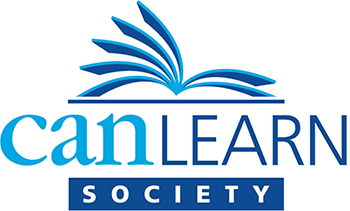As a former School Psychologist and a mother of children in the public school system, I’ve become quite interested in the IPP process. I’ve worked on school support teams creating and updating IPPs, have walked caregivers through the IPP process and have advocated for students who need adjustments to their IPPs.
I believe it’s critical that caregivers have a good understanding of what an IPP is and how important their role is in the IPP process. In this blog I want to set the IPP scene – review the basics.
What is an IPP?
An Individualized Program Plan (IPP) is a document meant to outline a specific plan to address your child’s challenges and needs and highlight their strengths.
- I have seen excellent IPPs that use a child’s strengths to help support their areas of challenge
An IPP is a working document. This means that we expect it to change with the needs of the student.
- As a School Psychologist, I loved to see a string consecutive IPPs that referenced changing goals, growth areas and shifting expectations. This process can be quite validating and rewarding for the student as well!
An IPP uses assessment findings to inform instructional strategies and develop supports. In other words, an IPP translates the findings of an assessment into strategies, supports, accommodations and a support plan for the student – like a roadmap.
IPPs include:
- Goals and objectives that a student will work towards during the school year
- Accommodations to help the student learn more effectively
- Information that can help with transition planning
The best IPPs are those that outline goals that are meaningful, measureable and achievable
Who Needs and IPP?
Each student identified as having a special education need must have an IPP – section 47(1) of the School Act outlines this in a bit more detail.
How to Get Started
Different schools and teams will approach the IPP process slightly differently
- Begin as soon as a student is identified as having special education needs – usually through an assessment that results in a specific diagnosis
CanLearn’s friendly, expert team of psychologists can help you get started with a psycho-educational assessment. For more information or to book, please contact us at [email protected] or (403) 686-9300 ext. 102.
- School teams typically hold IPP meetings at the beginning of each school year
- Update meetings are held throughout the school year so changes and adjustments can be made.
- Once your child has had an assessment, you can reach out to the school and let the support teacher, vice principal or principal know that an assessment has been completed and you would like to learn more about the IPP process at the school.
Who Is Involved in the Process?
Each school is a little different, but typically, the IPP team is a collaborative group consisting of the caregivers, principal (or vice principal), classroom teacher, support teacher, school counsellor or school psychologist. Other professionals may also be involved depending on the school and student needs (e.g., speech-language pathologist, occupational therapist, early childhood educator, class aide).
Why is it important for caregivers to be involved?
- Opens channels for communication and problem-solving outside of the IPP meetings
- Friendly/student focused language
- Generalization of goals outside of the classroom
- Strength focused document and goals
What are the Benefits?
Putting together a strong IPP can be a lot of work for caregivers and the school team. However, a well thought out, collaborative, student-focused IPP has many benefits.
An IPP:
- Helps everyone in the student’s support network to be on the same page and working toward shared goals
- Outlines strengths as well as specific areas of need, which can promote a strengths-based approach to support
- Identifies specific supports and individualized objectives that can be measured throughout the year
- Helps teachers to focus their time on strategies that are most impactful
- Increases communication between team members and outlines specific roles and responsibilities
- For older students, can be a good tool to help with self-advocacy
- Creates a paper trail of strategies tried, successes, and learnings
- Allows for future planning – working toward increased skillsets and areas of growth
- Helps with transitions between teachers, schools, programs, etc.
Dr. Heather Baker, R.Psych,
Director of Clinical Services at CanLearn Society

